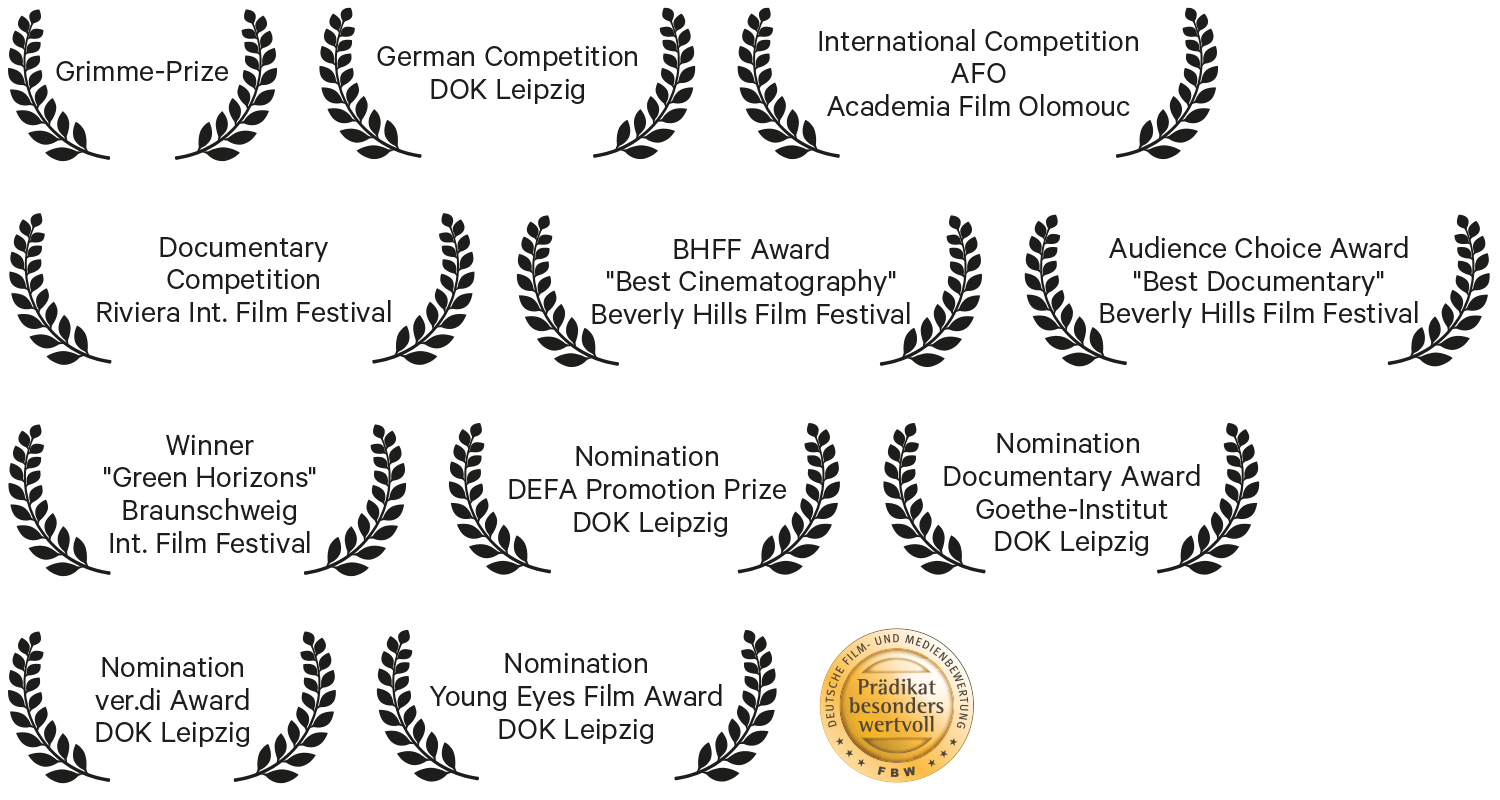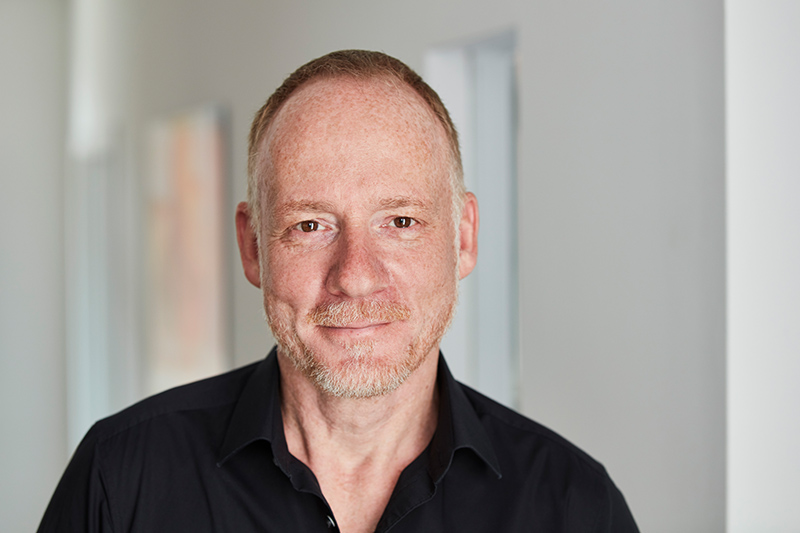NUCLEAR FOREVER
(94 min., Germany 2020)
(94 min., Germany 2020)
(94 min., Germany 2020)
Germany is turning away from nuclear power once and for all in 2022. Because the risk is too high, the technology unmanageable. Yet the nuclear nightmare goes on: with umpteen thousands of tonnes of radioactive waste whose storage isn’t the least bit clear. With the hazardous dismantling of power plants which will take decades and gobble up many billions of euros. And with neighbours who firmly hold on to mankind’s dream of atomic energy: 13 of the 27 nations in the EU operate nuclear power plants and the development thereof continues.
The feature-length documentary film NUCLEAR FOREVER (original title: ATOMKRAFT FOREVER) by Carsten Rau takes an equally profound and alarming look at the nuclear nightmare. In grand scenes that have yet to be portrayed like this, and in six interwoven episodes: about the absurd amount of effort involved in demolishing a gigantic nuclear power plant. About the quest for a final repository that is supposed to weather a million years and the next ten ice ages. Into the heart of the French atomic industry that ridicules the German opt-out as “ludicrous” and wants even more power plants.
In the process, what particularly sets this film apart is that it does not take sides in this debate which has been conducted for decades on a bitterly ideological plane. NUCLEAR FOREVER doesn’t leave any arguments out, even though they may be unpopular. In the end, the viewer can and must form their own impression of the mania called nuclear power. That has no end.
Director: Carsten Rau
Director of Photography: Andrzej Król
Film Editor: Stephan Haase
Music: Ketan und Vivan Bhatti
Sound Mixing: Yannick Rehder
Commissioning Editors: Kai Henkel (SWR), Timo Großpietsch (NDR)
Production: PIER 53 Filmproduktion

DOK Leipzig, Germany
CPH:DOX, Copenhagen, Denmark
Braunschweig International Film Festival, Germany
Nordische Filmtage, Lübeck, Germany
Kasseler Dokumentarfilmfest, Germany
DCEFF – Environmental Film Festival in the Nation’s Capitol, Washington DC
AFO – Academia Film Olomouc, Olomouc, Czech Republic
Beverly Hills Film Festival, California, USA
Riviera International Film Festival, Italy
Luxembourg City Film Festival, Luxembourg
Ecofalante Environmental Film Festival, Brazil
International FreDD Green Film Festival, Toulouse, France
Festival des deutschen Films, Peking
Pariscience Film Festival, Paris
UK Green Film Festival, England
“The jury honours this admirably shot and edited film for its calm and unbiased approach with which it casts light on the difficult problems posed by antithetical nuclear power strategies in Germany and France.”
(From the jury statement for the “Green Horizons Award” presented at the Braunschweig International Film Festival)
“What’s alarming about the situation becomes clear particularly because the film lacks any alarmism. Carsten Rau masterfully sounds out the highly charged debate with discerning depth and patience.”
(DOK Leipzig)
“NUCLEAR FOREVER conveys an impression of the enormous dimension of the nuclear power debate, back then and today. It could hardly be more up to date.”
(Lars Meyer, mdr Kultur)
“Nuclear power – yes please? Even one’s most ardent opinions are challenged in a film, which with understated German humour takes a new look at an old dispute.”
(CPH:DOX)
“The feature-length documentary film NUCLEAR FOREVER by Carsten Rau (‛Wadim’, ‛A very German Welcome’) takes an equally profound yet disquieting look at nuclear power in Germany, shown using outstanding scenes by cameraman Andrzej Król.
While doing so NUCLEAR FOREVER sets itself apart through the fact that director and author Carsten Rau doesn’t leave any arguments out, even though they may be uncomfortable. In the film he talks with people, all of whom live from and with nuclear power. In the end the viewer can and must draw their own conclusions about the madness of nuclear power. That has no end.”
(Musix)
“Director Carsten Rau creates an impressive portrait of the times with NUCLEAR FOREVER whose up-to-dateness will accompany us for decades to come.”
(Philipp Köhler, Leipzig Almanach)

Your film is entitled NUCLEAR FOREVER. An audacious title in light of the German opt-out.
Carsten Rau: I don’t think so. For example, on the one hand France continues to generate three quarters of its electricity using atomic energy. And around half of the member nations of the EU still operate nuclear power plants. Germany is opting out in 2022, that’s true. But the quest to find a final repository for our highly radioactive waste has only just begun and, at the earliest, will be concluded in 2031. And at some point this permanent waste storage site is supposed to lock away that nuclear waste safely for a million years. I’d say that sounds pretty much like forever.
What is the film about?
Carsten Rau: NUCLEAR FOREVER outlines mankind’s dream of infinite energy and the prosperity of modern societies as a result of nuclear fission. That dream is over in Germany. Among other elements, the film describes the absurd amount of effort to decontaminate and demolish 17 nuclear power plants, and at some point to get the nuclear scrap undergound. All that is going to take much longer than the power plants ever produced electricity. Mankind’s dream has turned into a nightmare.
Yet the film also accompanies advocates and nuclear engineers. Why?
Carsten Rau: Yes, it does. Among others we were able to film French engineers and young scientists. That was important to me. Because these people live for their dream of a nuclear future. They really mean it seriously. And global warming provides the advocates with new momentum because they say that atomic energy is low on CO2.
On the other hand, you don’t want to dispute that at around 10 percent worldwide nuclear energy is only making a small contribution to global power production, do you?
Carsten Rau: Some of the major industrial countries still continue to operate a substantial number of nuclear reactors, for instance the USA, China, Russia or, as I said, France. But the relevance nuclear energy has is not limited to the electricity that comes out of the pipe. The risk is global. As we saw in Fukushima, one single nuclear power plant is sufficient for a nuclear catastrophe that has dramatic consequences far beyond national borders.
Among other locations, NUCLEAR FOREVER brings viewers into the heart of the French nuclear industry. Wasn’t it difficult to get a permit to film?
Carsten Rau: To be honest, it took two years and a lot of person-to-person conversations until we set foot in the French nuclear research centre. The people there weren’t very partial to the film at first. I can understand that, too. But I think that the way we dealt with the scientists was transparent and fair. Whether they see things the same way is something I’ll find out soon when I fly to France again and screen the film in a movie theatre full of nuclear engineers. I’m already eager to see what happens.
Is the documentary film genre suited to a topic like this in the first place?
Carsten Rau: Definitely! Naturally it poses a challenge to craftsmanship to enact all the stories in the film scenographically and refrain from commentary or narration. But the film brings us to such incredible places with such exciting people that they justify a documentary film in any case. What’s more, we still strongly believe in viewing audiences’ mature judgment in terms of TV and the cinema. Everyone is going to walk away from this film with their own impressions. But there’s no getting around one realisation: nuclear power with its waste is here to stay.
While we’re at it, what’s your personal standpoint on atomic energy?
Carsten Rau: Even specialists with a critical view of nuclear don’t dispute the outstanding engineering achievement behind atomic energy. But the risk of an accident is too big, not to mention the everyday radiation emissions from a nuclear power plant. And we don’t have the slightest idea where to put the nuclear waste. That’s why I don’t think it makes sense to unleash the most powerful energy in this world just to heat up water.
PIER 53 Filmproduktion
in co-production with
Südwestrundfunk
Norddeutscher Rundfunk
funded by
The Federal Government Commissioner for Culture & the Media
Filmfund Hamburg Schleswig-Holstein
A film by
Carsten Rau
Film Editor
Stephan Haase
Sigrid Sveistrup, BFS
Director of Photography
Andrzej Król
Original Sound
Augusto Castellano
Aerial Photography
Andrzej Król
Line Producer
Caroline Bouche
Andrea Pittlik
Additional Research
Caroline Bouche
Andrea Pittlik
Transcription
Anne Schmalfeldt
Katja Maasböl
Büsra Can
Claus Hegmann
Translations
Julie Baujard
Caroline Bouche
Leigh Hoch
Travel Agency
Monika Wever, Fairlines
Assistant Film Editor
Lukas Hinsch
Image Editing
Oliver Stammel
DCP Mastering
Martin Heckmann, Kinopost
Graphic Design
Katja Reise
Title Design
Georg Krefeld
Subtitles
subtext Berlin
Music
Ketan and Vivan Bhatti
Sound Mix
Yannick Rehder, Tonik Studio
Sound Design
Timo Lindemann, Tonik Studio
Production Assistants
Andrea Pittlik
Jacob Hendriks (NDR)
Production Management
Thomas Lorenz (SWR)
Tim Carlberg (NDR)
Commissioning Editors
Kai Henkel (SWR)
Timo Großpietsch (NDR)
Executive Producers
Carsten Rau and Hauke Wendler

